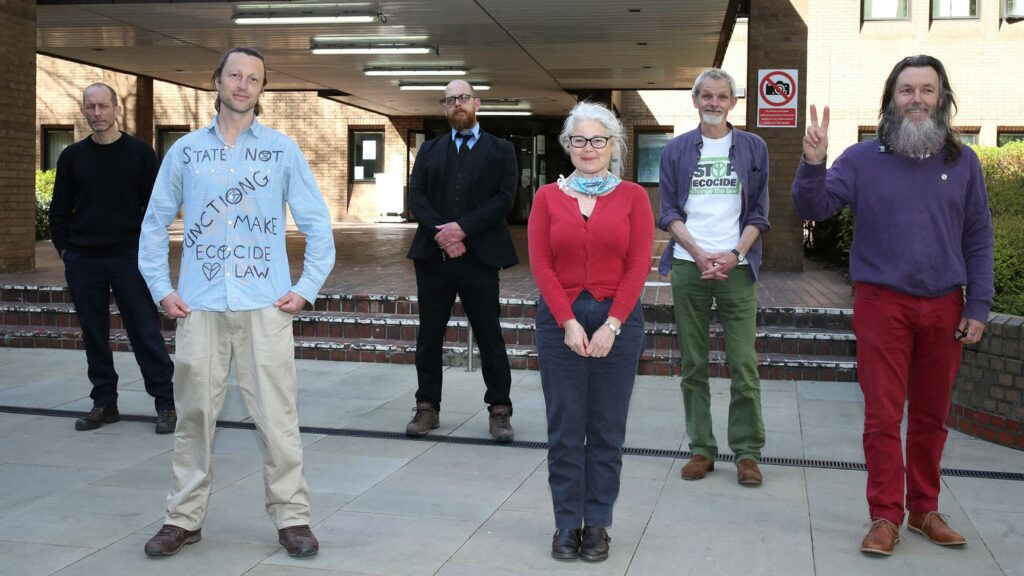Courts can no longer protect companies from climate flak


The writer is the author of ‘Wilful Blindness: Why We Ignore the Obvious at our Peril’
Last month, six people stood trial in Southwark Crown Court, charged with causing criminal damage to Shell’s London headquarters on April 15, 2019. The trial received little coverage at the time: although all six pleaded not guilty, it appeared to be an open and shut case. That the building was damaged was not in doubt; nor was the identity of the perpetrators.
But then, surprisingly, all six Extinction Rebellion activists were acquitted. This verdict deserves attention as it raises big questions about how far the law can protect companies that do not take real action to deal with the climate emergency.
The defendants were instructed by Judge Gregory Perrins that they could enter as evidence only who they were, what they had done and a brief explanation why. Defending themselves, each testimony was different. Senan Clifford, 60, recounted his frustration and despair about the environment. David Lambert, 62, described how mainstream voices urging action — such as broadcaster David Attenborough and former Archbishop of Canterbury Rowan Williams — reinforced his desire to prevent suffering.
Ian Bray, 53, a Quaker, felt a duty to speak truth to power. Simon Bramwell, 49, believed it was wrong that companies had rights while nature did not. Jane Augsburger, 55, addressed what she saw as criminal damage to the planet. And James Saunders, 41, described how, sitting on the canopy of the building’s entrance, he’d believed Shell employees would want him to save them from the suffering climate change would cause: he identified himself as a conscientious protector.
The tone of their testimonies was factual and short on rhetoric. Judge Perrins had instructed the jurors that moral justification was not a lawful excuse to cause criminal damage, but he had also explained that their oath required them to decide on the basis of the evidence they were given. In the end, the cumulative impact of that evidence led the jury to return a verdict of not guilty. (A seventh activist, who had only pleaded guilty due to childcare issues, was later conditionally discharged.)
Action on climate change clearly isn’t radical any more. It’s mainstream, required by law and increasingly demanded by the population. New accounting frameworks require companies to pay attention to environmental concerns. EU rules are clamping down on greenwashing. Children are changing parents’ minds about the urgency of action. Wilful blindness is no longer possible. Even several Shell executives quit last year after losing patience with the company’s pace of change.
In fact, impatience about climate action is growing. This month alone there have been high profile protests at Lloyds bank and HSBC branches in London — but also in Scotland and across England. At Wells in Somerset, scarcely a bastion of radical movements, a man glued himself to the floor of a local Barclays bank.
Companies should not assume that public hunger for climate action has been mollified by big, government promises. Many business leaders tell me privately that they want to do more but hesitate, blaming incoherent government policies (such as approval of a new coal mine in Cumbria) and loss of competitive advantage.
This has provoked an unusual enthusiasm for regulation, the hope being this will level the playing field and give companies licence to leap into action.
Meanwhile, many business leaders feel uncomfortable: it’s hard to maintain credibility while vacillating, especially given the speed of climate change. Amid their trepidation, though, the Shell court case has revealed a greater public demand for climate action than many might have thought before. Furthermore, they also now know that the courts might not always protect them.